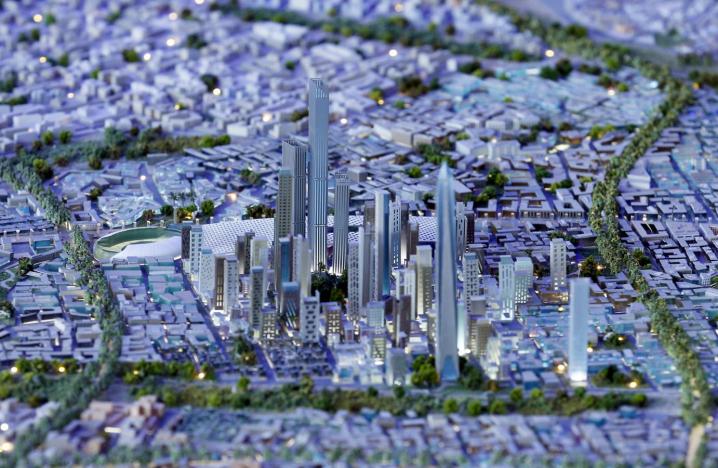
Following a meeting between heads of the firm and Egyptian President Abdel Fattah El Sisi, the China Fortune Land Development Company (CFLD) agreed to provide $20 billion for the city which is yet to be named.
Foreign investment: China keen to build industrial zone
Earlier, another Chinese state-owned company committed $15 billion for the project, bringing it close to the $45 billion budget requirements for phase I.
First announced in March 2015, the new project was described by government officials as a solution to crowding, pollution and rising house prices in Cairo.
"Cairo Capital is a momentous endeavour to build national spirit, foster consensus, provide for long-term sustainable growth," said the project website. "(The) new city will create more places to live, work and visit."
Portrayed as far grander than the current capital, the 700 square kilometer city to be constructed in the desert to the East of Cairo would become the new seat of government.
Plans for the city include housing for five million people, over 1,000 mosques, smart villages, industrial zones, a 5,000-seat conference center, and the world's largest park.
Orange Line: China’s Exim Bank releases Rs3.63b tranche
Construction is already under way on the capital and according to Egypt's Al-Ahram newspaper, engineers have begun work on infrastructure including bridges roads.
However, interest in the project has been brisk. Despite the optimism from officials, concerns remain about the project encountering familiar problems. Several satellite towns constructed around Cairo in the past have registered low occupancy despite high investment.
This article originally appeared on CNN

1731570357-0/elon-musk-(1)1731570357-0-165x106.webp)
-(1)1717678110-0/Kendrick-(1)-(1)1717678110-0-165x106.webp)





1732445375-0/Untitled-design-(9)1732445375-0-270x192.webp)








COMMENTS
Comments are moderated and generally will be posted if they are on-topic and not abusive.
For more information, please see our Comments FAQ